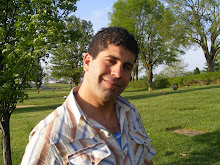Every language has its own story of origin and development. Tracing back the history of a language provides interesting insights about the history of how nations got their shapes, how they interacted with each other in various ways and how cultures were produced and evolved. In this sense, language is not only a means of communication. It is rather a strong definer of the identity of the masses.
Few people would have access to the trajectory English language has undertaken before it became the first international language. Actually, it would be difficult for anyone to believe that English emanated from a variety that was spoken by the Germanic tribes who inhabited Angeln, today’s north Germany, and spoke Englisc. However, major philologists expressed their consensus on such a fact. They claimed that three basic historical stages gave rise to the contemporary English.
After the collapse of the Roman Empire in Britain in the fifth century, the Germanic invaders gained control of England and introduced their own language. The latter is referred today as Old English. The spelling was quite different and several grammatical conventions were absent such as the lack of third person plural forms starting with Th.
After the Norman invasion around 1066, the Anglo-Norman French had a remarkable impact on Old English lexicon. The English of this medieval period is largely known as Middle English. Many inflections were dropped and thousands of French words made their way into English. In this regard, Durkin Philip suggests “one only has to flick through the etymologies of any English dictionary to get an impression of the huge amount of words entering English from French and Latin”. It goes without saying in this respect that there was only one English variety evolving and making its way to the whole country. It is indeed the variety that was used in London that received much prestige thanks to the economic and social status of London throughout the history of Britain.
London variety gained enormous recognition by the invention of printing press. The time was marked by active exploration and colonization of all spots of the world, of which America was but one instance. Once again English had to have contact with other linguistic varieties, effect changes on them and be effected by them as displayed by the increasing acquisition of new loanwords. It was also a moment of Renaissance in which Latin and some of Greek ingrained a directly permanent place in this so called Modern English. Barbara Fennell notes that since 1900 English absorbed a great number of vocabulary words and that “the majority of these words is related to science and technology, and use Greek and Latin roots.”
Looking back at these stages in the history of English, one may be amazed at the role cultures contacts and exchanges played in the crystallization of English that has become so far the Lingua Franca of the world community. Bearing in mind the conquests of England by different nations and also its being the empire in which the sun has never set as they said, English is likely to have nourished from the entire globe. That to some extent has been the case of all world languages though in various manners and through different stages. All this may give a big blow to those advocators of racial and cultural purity. There is after all no pure language, and since language is part and parcel of culture there is no pure culture. Finally, it is such fact that made the cultural dialogue as the dominant discourse in the modern era in the hope to stabilize the international political unrest.
Durkin, Philip. The history of English: Five Events that Shaped the History of English. http://www.askoxford.com/worldofwords/history
Fennell Barbara. Ahistory of English.http://www.ielanguages.com/enghist.html
Thursday, April 24, 2008
Subscribe to:
Post Comments (Atom)

2 comments:
I am just amazed at your writing, the creativity, the thought - you should be a writer! I especially enjoyed the line that you said there is no pure language-how true! What insight!
That is to cool!
Thanks
Norak
I loved the deep thought you put into your post it was truely well put together. I agreed with your thoughts as well. The language itself is put together with so many languages as I wrote how could it be pure as well as any other. well written.
Post a Comment